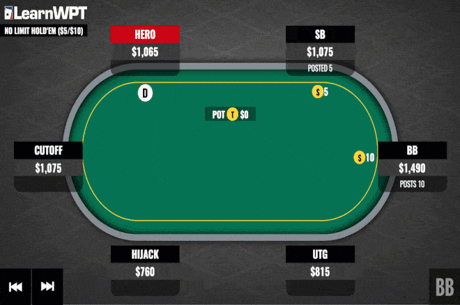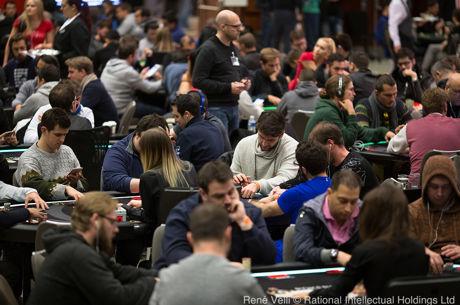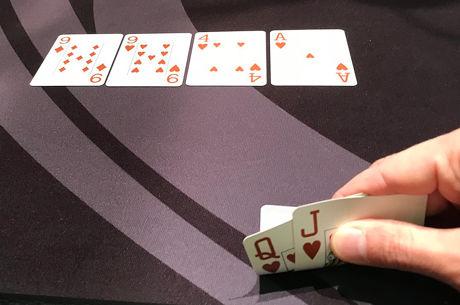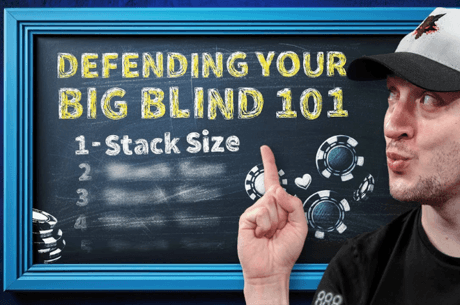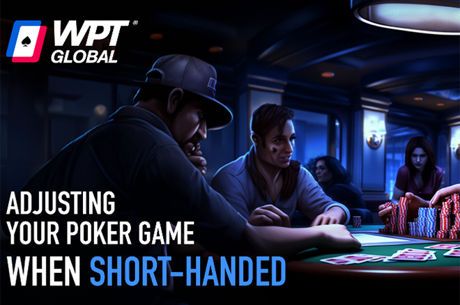Seven Considerations When Bluffing or When Facing a Bluff
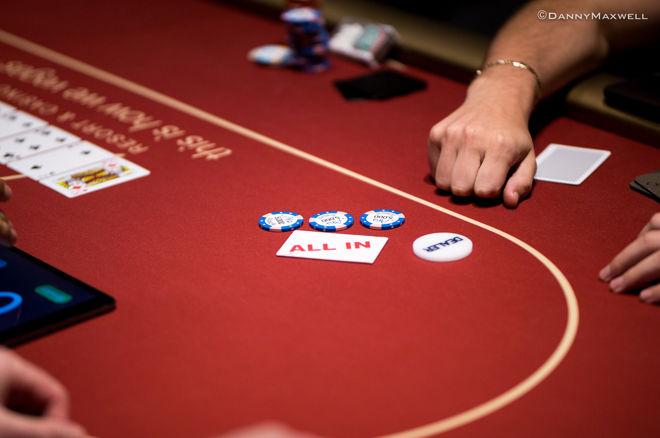
In my last two columns I covered six ingredients of the successful bluff. In this, my final column (for now) on the subject, we'll look at seven other considerations when bluffing or when facing a bluff.
1. Small bluffs often work as well as large ones
Lesser-skilled opponents often don't consider pot odds when deciding whether or not to call your bet. Accordingly, against them, why risk a large bluff when a small one might accomplish the same thing?
Imagine a $1/$2 game. You're in the cutoff. Three of your opponents call, as do you, and then the villain, a mediocre player who is very loose and wild, makes it $15 from the button. You suspect he is trying to steal the pot. Your other opponents fold and when the action gets back to you, you call.
There is a dry flop that doesn't hit your hand and you check to him. He bets $20 into the $37 pot. You suspect he is making a continuation bet with nothing. Accordingly, you decide to try to take the pot away from him with a check-raise bluff.
The effective stacks are $250. On the one hand, you are thinking of making it $75 or more to really put him to the test. But you probably don't need to raise much more than the minimum to make your bluff effective.
If you've read him correctly as c-betting to steal the pot, he's likely to concede if you take any aggressive action against him. On the other hand, if he's really hit a strong hand, and is not bluffing, your raise is not going to knock him off his hand no matter how large a raise it is — and you'll lose more with your larger raise.
2. Exiting players are unlikely to be bluffing
Your opponent looks up as his wife walks over to the table. She is coming over to get him for a long overdue dinner. He's already been dealt in and is just looking at his cards. He says to his wife, "Just let me finish this hand, honey."
He's in late position, and when the action gets to him he raises. You're on the button with K♦J♥. You think of reraising. Don't. Fold.
Your opponent has probably hit a monster. Casual players, getting ready to leave the table for a meal, or for the day, are generally going to fold their borderline or worse hand, and often are not going to be interested in getting creative or deceptive right before leaving. When they bet, they're strong.
3. Players being sweated are less likely to bluff
Imagine the same scene as above, but the wife is looking at her husband's cards. He deliberately shows them to her and she looks on. The husband raises the blinds and the action is on you. (Or picture a similar situation with a friend railing your opponent.)
Once again, it is highly unlikely that the player is bluffing. Players are unlikely to show off a bluff to someone sweating their hand, and much more likely to be showing them how strong their cards are — and how well they play.
4. Players who are extremely fatigued are unlikely to be bluffing
You've seen opponents like this. They have been playing for 24 hours straight and can barely lift their heads up, often napping in between hands. They're probably waiting for some monster so they can get back to even.
In between they are playing passively, mostly folding or calling to see flops, and when they do wake up to bet are very unlikely to be bluffing. If they make a large raise, expect that they have an extremely strong hand.
5. An all-in bet by a short stack often means weakness
There's an exception to the above consideration. Players with a short stacks, even those who are extremely fatigued, will often shove it in with little or nothing. They reach a level of resignation and futility that causes them to just want to get it over with. They may even say something like, "It's time to double up or go home!" and it's an honest indication of what they're thinking.
Of course, sometimes they actually have a hand. But most of the time you can call them (or raise to isolate them) with any decent holding and expect that the odds will be in your favor.
6. A player who sighs before he bets is unlikely to be bluffing
Lesser-skilled players are rarely subtle. Their attempts at deception are often humorously obvious. An audible sigh, before betting, often indicates true strength. Their sigh was meant to convey how weak they felt — an attempt to get you to call.
On the other hand, this is one of the tells that many good players know. So adding a sigh to your bluff may actually increase your chances of successfully bluffing a good player!
7. Talk usually means strength
Your opponent has shoved. You're deciding what to do. It's been more than a couple of seconds and you're having a tough time deciding whether your opponent is really strong or whether she's bluffing. Your opponent offers some suggestions.
"Hey, I have nothing!" she says. "What do you think I have?" she queries. "You'll double up if you win this hand," she adds gratuitously. Is she bluffing? Is she really strong?
Most of the time, against mediocre or worse players, this is a sign of strength. Bluffers generally don't want anyone to notice them. They tend to be physically and vocally still. So when players start talking to you when you're thinking about what to do, they tend to be extremely confident in their hands.
There are exceptions, of course, but most of the time, when you're facing a big decision and your opponent is babbling at you, you should avoid the close calls and concede.
Conclusion
The above seven considerations are not to be taken as absolutes, and they apply best to lesser-skilled opponents. Better players are often good enough not to fall into these conventional habits of play.
Therefore — as a final word of caution — make sure that you avoid these obvious behaviors when you play.
Ashley Adams has been playing poker for 50 years and writing about it since 2000. He is the author of hundreds of articles and two books, Winning 7-Card Stud (Kensington 2003) and Winning No-Limit Hold'em (Lighthouse 2012). He is also the host of poker radio show House of Cards. See www.houseofcardsradio.com for broadcast times, stations, and podcasts.

